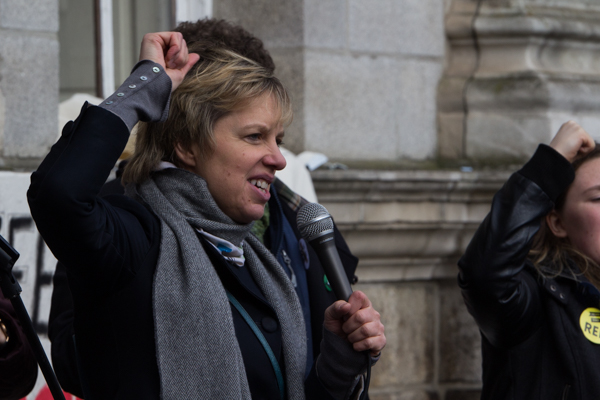Trinity Senator Ivana Bacik has said she will “certainly be seeking” to run in a by election in Dublin Bay South, following the resignation of Eoghan Murphy, a Fine Gael TD in that constituency.
Speaking outside the Dáil today, Bacik said Murphy’s departure came as a surprise.
Bacik, a Labour senator said: “I lived for a long, long time in Dublin Bay South. My family are from there and I will certainly be seeking the Labour nomination there to run as a candidate.”
She added that she hopes to provide a woman’s voice in what is currently an all-male constituency.
“I will certainly be seeking the Labour nomination there to run as a candidate in the by election, absolutely.”
Murphy announced his resignation from the Dáil this morning to pursue a career in “international cooperation, human rights and diplomacy”. The former housing minister’s seat will be filled in a by-election which must be run within the next six months and, pandemic permitting, could take place as late as November.
Bacik is a barrister and the Reid Professor of Criminal Law, Criminology and Penology at Trinity College Dublin. She is also a former president of Trinity College Dublin Students’ Union.
Alongside the announcement of her intention to contest the by election, she today launched the Labour motion on a National Autism Strategy with Dublin Bay North TD Aodhán Ó Ríordáin. The motion will be debated in the Dáil this Thursday.
A senator for the University of Dublin panel since 2007, Bacik was last elected in April 2020 alongside fellow Trinity graduates David Norris and Lynn Ruane. If elected a TD, she will have to give up her seat in the Seanad.
Trinity’s three incumbent Senators all held onto their seats in the Seanad after the 2020 election.
Norris, a Senator since 1987, reclaimed his seat on the fourth count, with Bacik winning hers on the sixth count and Ruane following on the eighth.
The three Senators were re-elected after a count that took place in a near-empty lecture theatre in Trinity’s Business School, where social distancing protocols were followed.
They triumphed in a race that saw just 10 candidates vying for election – a smaller pool than 2016, when 16 candidates ran. Just two of the candidates – Bacik and Ruane – were women.







